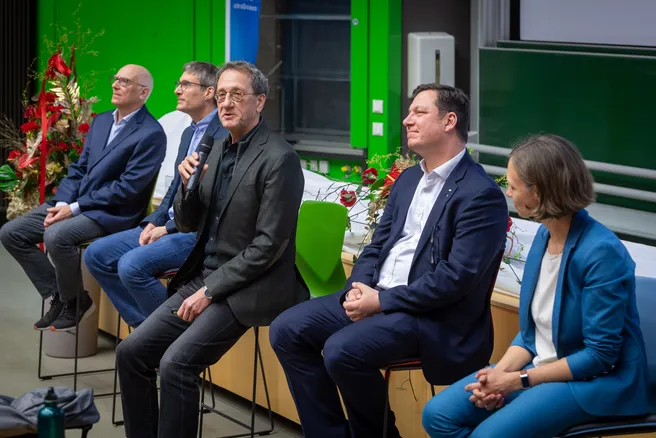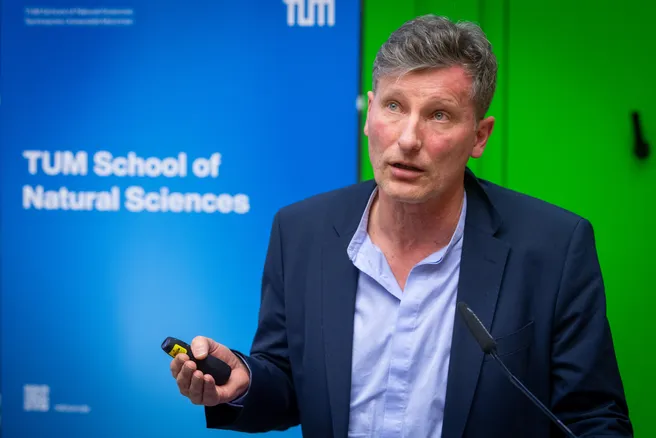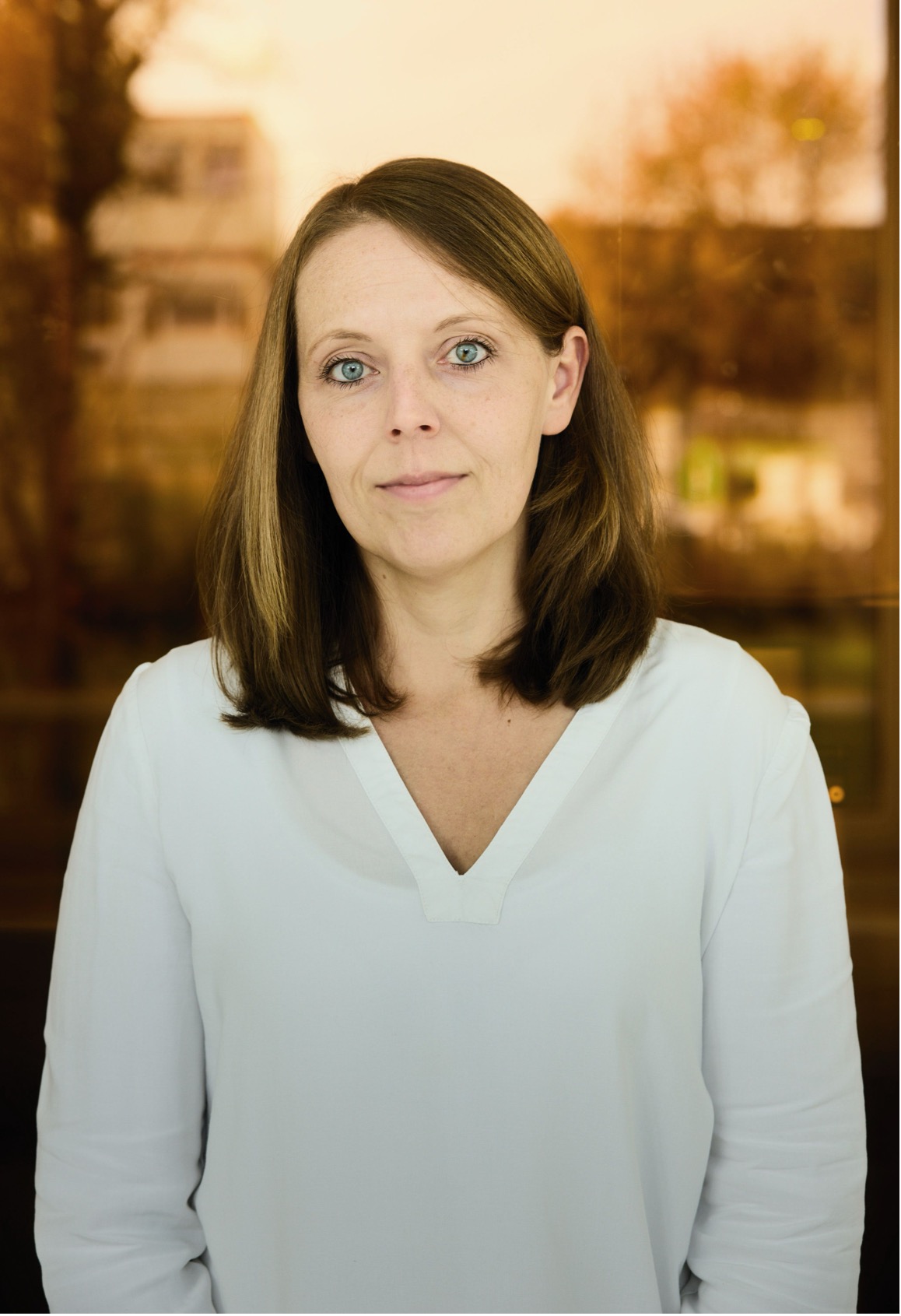After a welcome drink at 2:15 PM, guests were ushered into the Hans Fischer Auditorium, where Dean Prof. Johannes Barth warmly welcomed the "members of the NAT family" and expressed his delight that so many had made their way to the event.
Review and Achievements of NAT
In his welcome speech, Prof. Barth highlighted the milestones in chemistry and physics, which, together with the newly established Bioscience Department, form the foundation of the TUM School of Natural Sciences. He particularly emphasized the Schools continuous growth: the number of professorships is now approaching 100, and student numbers are also on the rise. Further details on student development were later presented by the Academic Program Directors (APDs) Prof. Martin Elsner and Prof. Wilhelm Auwärter.
Prof. Barth also presented the NAT Mission Statement: "Discovery at all scales" – with the aim of enriching society with new ideas. He emphasized the importance of internal scientific discourse and compared collaboration within NAT to an eight-person rowing team, where every contribution counts. Since its founding, NAT has successfully met challenges and made significant progress, as reflected in current global university rankings, in which TUM is ranked as the best university in the European Union.
Following this, the outstanding achievements of NAT's scientists and teachers were recognized. Prof. Barth introduced the most important awards of the past year and invited applause for all award winners, who, through their research and teaching, continue to enhance the reputation of NAT and TUM.
Insights into Research, Teaching, and Administration
After presenting current infrastructure measures, Prof. Barth handed the floor to Prof. Thomas Brück, Vice Dean of Research & Innovation. He was pleased to welcome both old and new colleagues, emphasizing NAT’s strong position in excellence clusters and describing last year’s definition of the "NAT Core Research Areas" as a key milestone.
Prof. Karen Alim, Vice Dean of Talent Management & Diversity, then spoke about the establishment of the Diversity Council and measures to improve the onboarding of new employees. Dr. Josef Homolka, Vice Dean of Information Management, outlined the major tasks for the coming year, including the implementation of a new SAP system and the expansion of the "NAT DigitalSchoolServices."
The first part of the event concluded with reports on studies and teaching. Prof. Elsner provided insights into the strong growth of student numbers in physics and biochemistry as well as the upcoming accreditation of the bachelor's program in chemistry. Prof. Auwärter presented current and planned master's programs in physics and thanked Prof. Julia Herzen, who is now serving as the new deputy APD for physics.
Introduction of New Professors
The second part of the event focused on introducing NAT’s new professors and their current research. Prof. Matthias Rief, Department Head of Bioscience, presented Prof. Marcus Conrad as a "pioneer in cell biology," whose research focuses on ferroptosis and its significance in combating degenerative diseases and cancer.
Prof. Tom Nilges, Department Head of Chemistry, introduced Prof. Max Hülsey as a "versatile scientist" whose research revolves around fundamental methods in chemistry and engineering for developing sustainable solutions, with a particular focus on catalysis and surface processes.
On behalf of Prof. Elisa Resconi, Department Head of Physics, Dean Prof. Johannes Barth introduced Prof. Johanna Eichhorn. Her expertise lies in investigating the physical fundamentals of energy conversion processes, especially in non-ideal materials.
The final new professor introduced was Prof. Patrick Rinke, presented by Prof. Barth. Prof. Rinke works at the intersection of computational materials science and machine learning, aiming to develop sustainable materials. He is particularly interested in exploring which scientific questions can be effectively addressed using artificial intelligence.
Conclusion with a Shared Buffet
Dean Prof. Johannes Barth concluded the event with an optimistic outlook for the coming year and, following a group photo, invited all guests to a communal buffet outside the Hans Fischer Auditorium. This provided an opportunity for further exchanges and networking.
Further Information & Links:
- Prof. Marcus Conrad, Lehrstuhl für Translational Redox Biology
- Prof. Max Hülsey, Professur Catalytic Interfaces for Sustainable Chemical Energy Carriers
- Prof. Johanna Eichhorn, Professur Nanoscale Microscopy and Spectroscopy of Energy Materials
- Prof. Patrick Rinke, Lehrstuhl für AI-based Materials Science
Press Contact:





